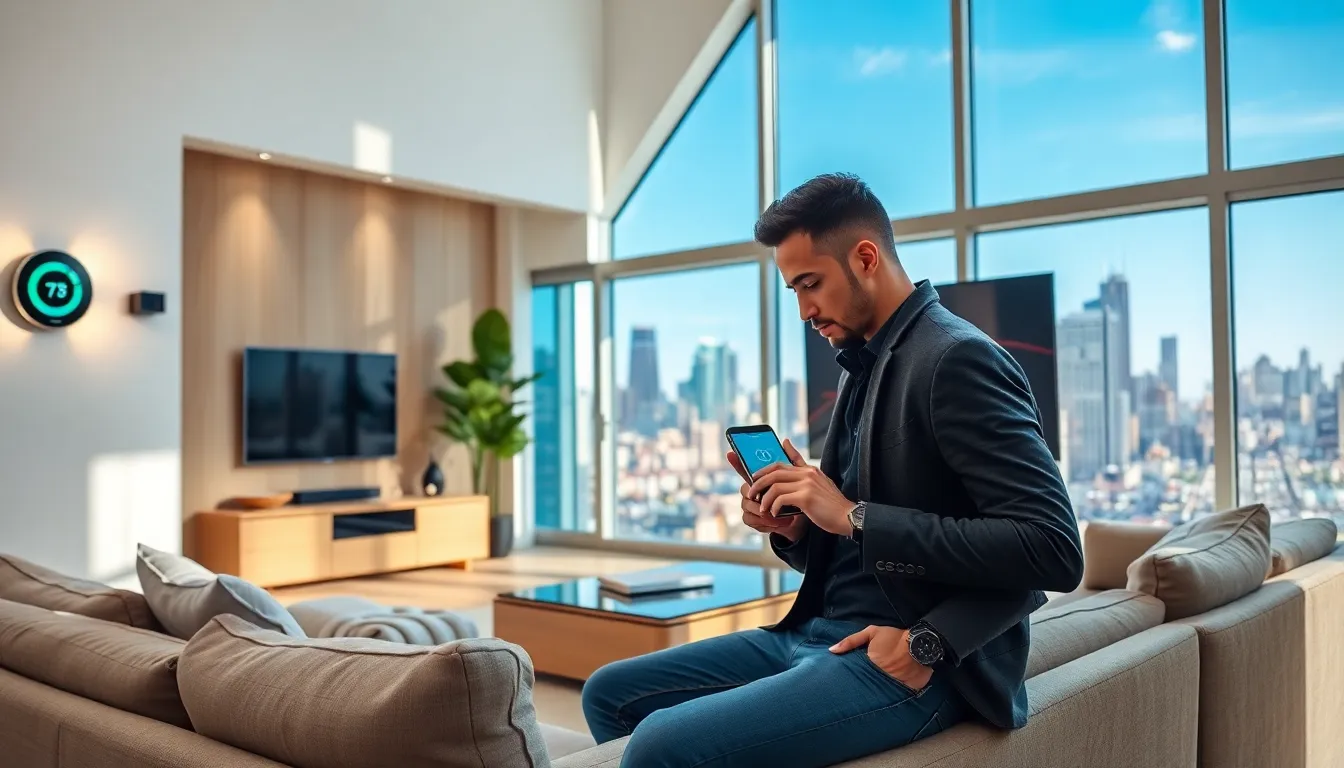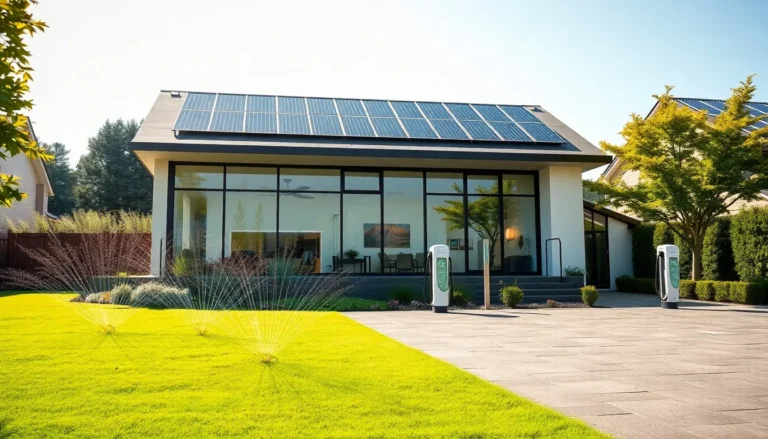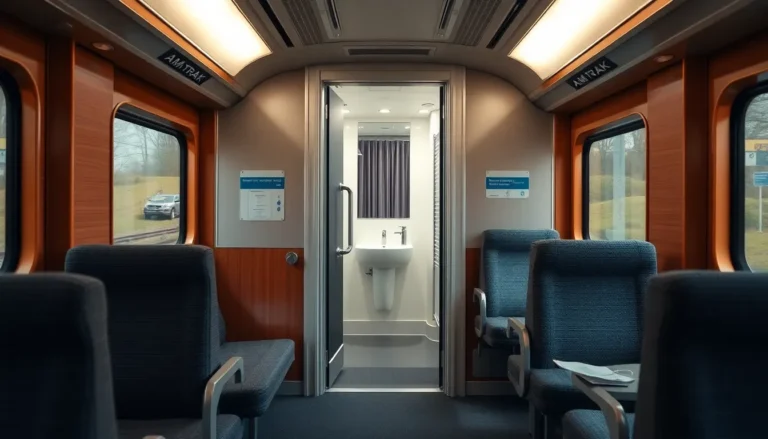Imagine coming home to a house that knows your routine better than your best friend. Picture lights dimming as your favorite show starts and the thermostat adjusting to your preferred temperature without you lifting a finger. Welcome to the era of smart homes in Chicago. As technology zips ahead at an exhilarating pace, residents can now turn their humble abodes into futuristic havens. But what does that really mean for the Windy City? Buckle up to explore how smart home technology transforms everyday living into seamless convenience, because no one should ever miss the punchline of their favorite sitcom.
Table of Contents
ToggleOverview of Smart Homes

Smart homes harness a variety of connected devices to provide homeowners with greater control over their living spaces. These advanced systems integrate everything from lighting and heating to security and entertainment into a single network, allowing for a coordinated management experience. In Chicago, where temperature fluctuations and busy lifestyles are the norm, smart homes offer peace of mind and convenience. Homeowners can remotely adjust systems using their smartphones, simplifying everyday tasks. As urban life continues to evolve, embracing smart home innovations is more practical than ever, encompassing efficiency, comfort, and enhanced safety.
Benefits of Smart Home Technology
The perks of smart home technology are abundant and appealing. First, energy efficiency stands out as a major advantage. Smart thermostats can learn habits and adjust heating or cooling accordingly, leading to significant savings on monthly bills. Also, enhanced security through smart locks and surveillance cameras ensures peace of mind. Did someone mention convenience? With everything at your fingertips, from controlling lighting to managing appliances, life becomes undeniably simpler. Finally, smart homes can increase property value. As modern buyers seek innovative solutions, a smart-equipped home tends to grab their attention. Homeowners find these technologies can boost resale potential, making it a wise investment.
Key Features of Smart Homes
What exactly makes a home ‘smart’? Let’s break it down.
1. Smart Lighting
Imagine walking into a room and the lights automatically adjusting to your desired brightness. Smart lighting systems can be controlled through smartphones, timers, or even voice commands.
2. Home Security Systems
From smart locks to doorbell cameras, security is often at the forefront of smart home technology. These systems keep homes safe while providing real-time updates.
3. Smart Thermostats
These devices learn the homeowner’s schedule and automatically adjust heating and cooling, resulting in lower energy bills and a comfortable living environment.
4. Home Automation Hubs
Think of these as the brains behind the operation. Hubs integrate various devices enabling users to switch between home security, lighting, and more.
In Chicago’s urban environment, these features not only contribute to convenience and luxury but also sustainability. Adaptability, energy management, and comfort are essential in achieving a smart living space.
Popular Smart Home Devices in Chicago
In a city like Chicago, several smart home devices have taken precedence among homeowners.
1. Google Nest
Renowned for its smart thermostats and security cameras, Google Nest is a top choice. Its ecosystem promotes easy integration with other smart devices.
2. Amazon Echo
This smart assistant operates through voice commands, enabling homeowners to manage music, ask questions, or control other smart home devices effortlessly.
3. Philips Hue Lights
Bright, customizable, and energy-efficient, these smart lights fit seamlessly into both home aesthetics and daily routines.
4. Ring Video Doorbell
Providing visual access to visitors, this doorbell keeps residents informed and secure.
As Chicagoans seek devices that not only complement their lifestyle but also enhance safety and control, these products lead the charge in smart technology.
Challenges and Considerations
Smart homes certainly boast numerous advantages, but several challenges come with the territory.
1. Initial Costs
Investing in smart home devices can feel daunting. High upfront costs may dissuade prospective buyers. Budgeting becomes essential to ensure future savings.
2. Compatibility Issues
With a wide variety of manufacturers and devices, compatibility can pose challenges within a smart system. Ensuring that devices can communicate efficiently addresses this concern.
3. Privacy and Security
As with any technology that connects online, hackers and data breaches are legitimate concerns. Ensuring secure networks and regularly updating systems helps protect homeowners from malicious threats.
4. Technological Literacy
For some, navigating smart technology feels overwhelming. Familiarity and training can bridge the gap between technology and user experience, making it imperative for companies to provide support.
While these challenges exist, they don’t overshadow the potential that smart homes hold for residents in Chicago.
The Future of Smart Homes in Chicago
As Chicago embraces innovation, the future of smart homes looks bright. With advancements in artificial intelligence, smart homes will respond more intuitively to human behaviors and preferences. We can anticipate smoother integrations among devices, creating an ecosystem rather than isolated products. Besides, the rise in sustainability efforts is fostering the development of energy-efficient smart devices. Imagine a city where homes actively conserve resources and reduce waste, contributing positively to the environment. Also, as urban planning evolves, integration of smart home technology into new constructions and renovations will become commonplace, positioning Chicago as a leader in smart living. As trends continue to shift toward automation, residents can expect their homes to enhance not just lifestyle but community wellness.


